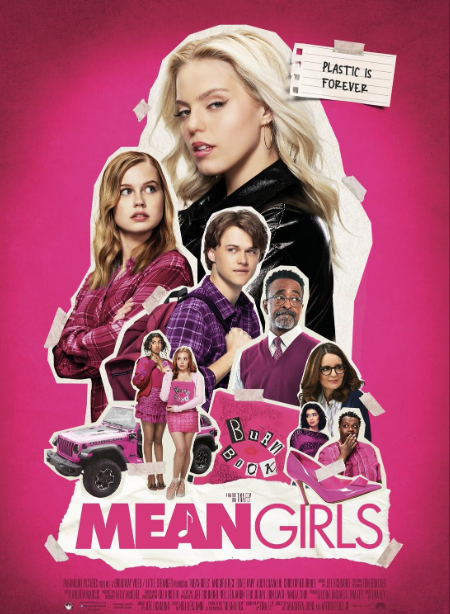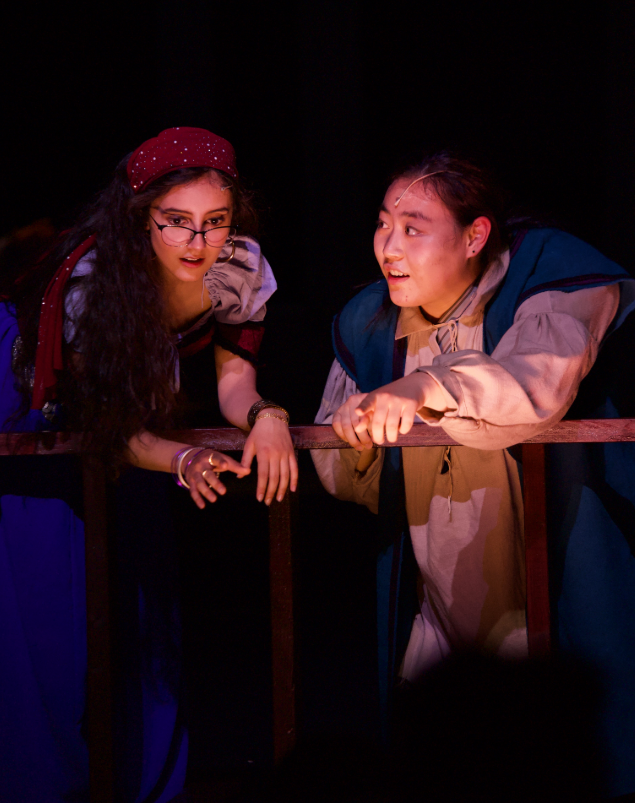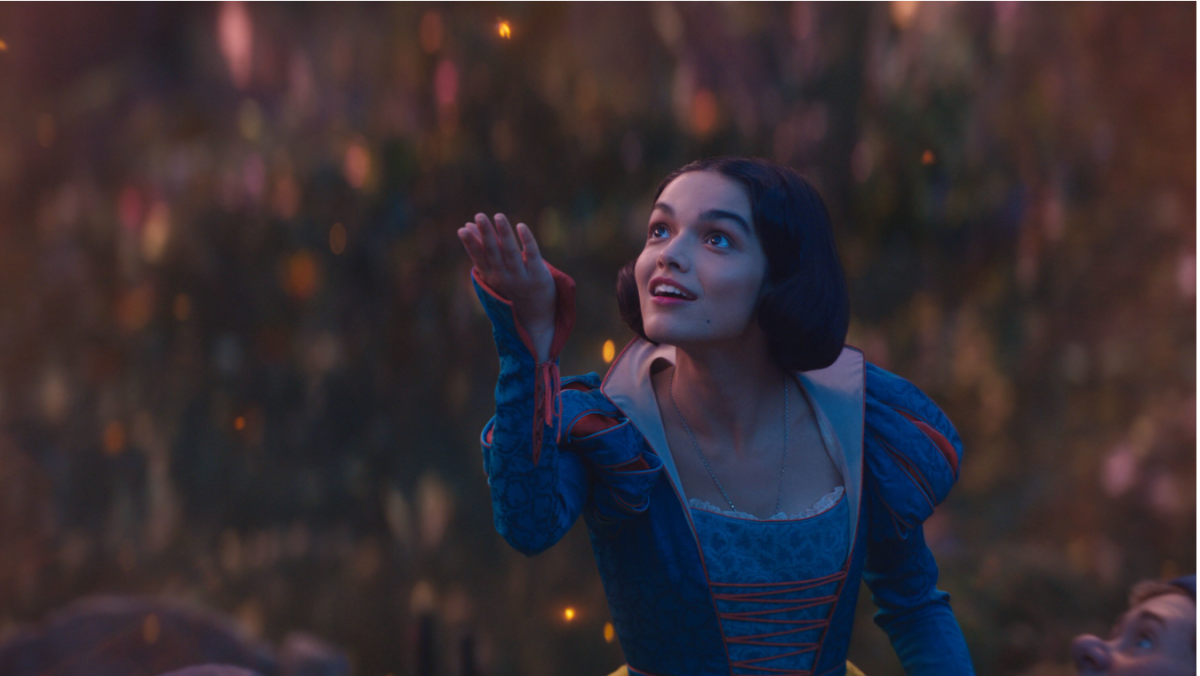The “Mean Girls” Musical garnered attention with vibrant backgrounds and even more colorful lyrics, presenting a ‘Cautionary tale about corruption and betrayal.’ The screen transitioned from total darkness to a phone recording, offering a fresh perspective on conventional movies. Through the fusion of modernization and music, Mean Girls elicited raw and comical reactions.
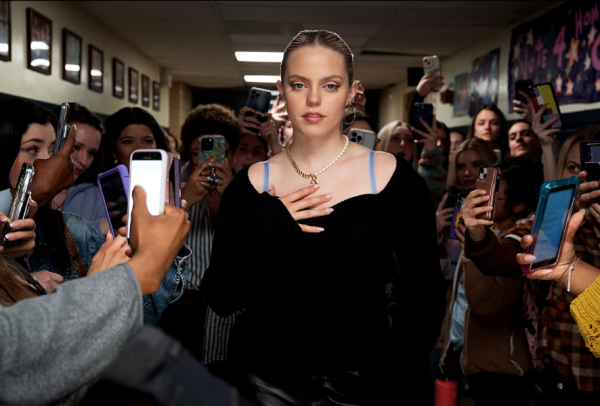
In the original 2004 Mean Girls movie, Cady Heron, portrayed by Lindsay Lohan and now by Angourie Rice, is introduced as a new girl from Kenya with no defined background. This narrative aspect was retained in the 2024 remake, where Cady’s African heritage, accompanied by animalistic sound effects, added a unique flair to her character. However, upon arriving at North Shore High School, the focus shifted from this existential change to her efforts to befriend Janis Sarkisian and Damian Hubbard while attempting to “settle down.”
Regina George, played by Reneé Rapp, enters the scene, captivating everyone with her presence. “Fear me, love me, stand and stare at me,” Regina performs, with her hair perfectly intact and her black leather jacket contrasting with the colorful set, embodying a dominating persona. Which I enjoyed because it accentuated the importance of her character.
As the story progresses, the spotlight shifts to the evolution of Heron’s relationship with The Plastics. However, Regina’s vigorous state doesn’t extend to the entire group. Gretchen Wiener grapples with finding such strength within herself, battling inner insecurities about her physique—a struggle reflective of challenges faced by women in our society. Self-image seems to be discussed heavily in this musical versus the movie premiered in 2004.
Another societal challenge explored is the concept of the girl code. This becomes a hurdle for Heron as she navigates her growing feelings for Regina’s ex-boyfriend, Aaron Samuels, portrayed by Christopher Briney, also known for his role in “The Summer I Turned Pretty” by Jenny Han. This dilemma forces Heron to confront whether to pursue her underlying affection for Samuels when George gets in the way between Samuels and Heron at a Halloween party.
Heron faces a decision regarding the significance of adhering to the “girl code” in her interactions. Opting for a fake friendship with George and the Plastics, she suffers the loss of Samuels to George, fueling Heron’s determination to bring down Regina George. Her retaliatory actions include substituting face cream with lard, providing deceptive “weight loss” bars, and ultimately exposing George’s involvement with Shane Oman and causing a rift in her relationship with Samuels, who ends up with Heron.
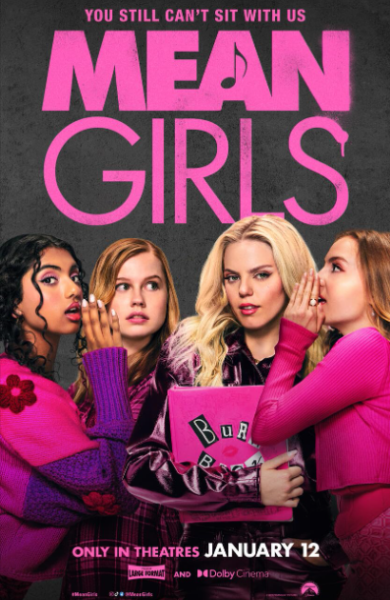
The plot takes a surprising twist as Heron steps into George’s shoes, assuming the role of the queen bee. Despite initially reveling in the envy and jealousy directed at her, Heron finds herself succumbing to the same toxic behaviors as George. The consequences are severe, leading to the alienation of friends like Janice and Damian, and Heron losing touch with her true self. I found myself enjoying this scene simply because it allowed Heron to become more self-conscious and take into account the severity of her actions, regardless if she was extensively at fault or just minorly.
As the Burn Book is exposed—a shameful creation by the Plastics, targeting female students at school—Heron finds herself unfairly blamed. Despite the damage to her reputation, Heron navigates through the crowd and manages to rebuild her image. In the process, she uplifts not only her self-image but also empowers other female students, turning the situation into an opportunity for growth and positive change.
The “Mean Girls” musical of 2024 provides a poignant exploration of characters’ emotions and the difficulties of fitting in when individuals face unfair judgments based on appearance or intelligence. This theme is effectively conveyed through the continuous display of songs in the musical and subtle features. The film dives into various societal issues, including women’s insecurities, the over-sexualization of women’s bodies, and the inclusion of supportive LGBTQ+ moments. Moreover, it successfully portrays the creation of meaningful bonds with family and friends. Overall, I recommend this musical series and would give it a rating of 7/10.

